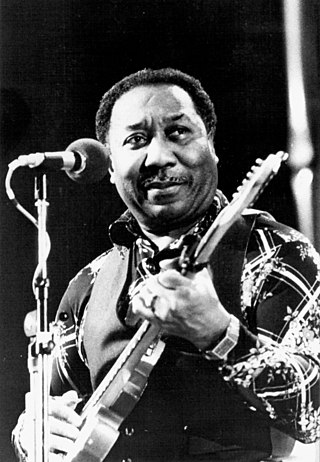
McKinley Morganfield, known professionally as Muddy Waters was an American blues singer, songwriter and musician who was an important figure in the post-World War II blues scene, and is often cited as the "father of modern Chicago blues". His style of playing has been described as "raining down Delta beatitude".

George "Buddy" Guy is an American blues guitarist and singer. He is an exponent of Chicago blues who has influenced generations of guitarists including Eric Clapton, Jimi Hendrix, Jimmy Page, Keith Richards, Stevie Ray Vaughan, Jeff Beck, Gary Clark Jr. and John Mayer. In the 1960s, Guy played with Muddy Waters as a session guitarist at Chess Records and began a musical partnership with blues harp virtuoso Junior Wells.
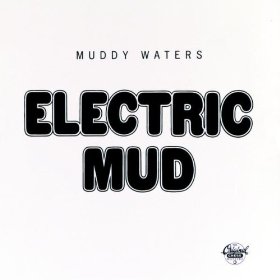
Electric Mud is the fifth studio album by Muddy Waters, with members of Rotary Connection playing as his backing band. Released in 1968, it presents Muddy Waters as a psychedelic musician. Producer Marshall Chess suggested that Muddy Waters record it in an attempt to appeal to a rock audience.

Junior Wells was an American singer, harmonica player, and recording artist. He is best known for his signature song "Messin' with the Kid" and his 1965 album Hoodoo Man Blues, described by the critic Bill Dahl as "one of the truly classic blues albums of the 1960s". Wells himself categorized his music as rhythm and blues.
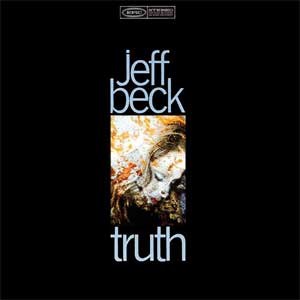
Truth is the debut studio album by English guitarist Jeff Beck, released on 29 July 1968 in the United States on Epic Records and on 4 October 1968 in the United Kingdom on Columbia Records. It introduced the talents of his backing band the Jeff Beck Group, specifically Rod Stewart and Ronnie Wood, to a larger audience, and peaked at number 15 on the Billboard Top LPs chart.
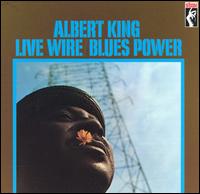
Live Wire/Blues Power is a blues album by Albert King. It was recorded live in 1968 at the Fillmore Auditorium. Leftovers from the recordings were released on the albums Wednesday Night in San Francisco and Thursday Night in San Francisco.

Folk Singer is the second studio album and fourth album overall by Muddy Waters, released in January 1964 by Chess Records. The album features Waters on acoustic guitar, backed by Willie Dixon on string bass, Clifton James on drums, and Buddy Guy on acoustic guitar. It is Waters's only all-acoustic album. Numerous reissues of Folk Singer include bonus tracks from two subsequent sessions, in April 1964 and October 1964.
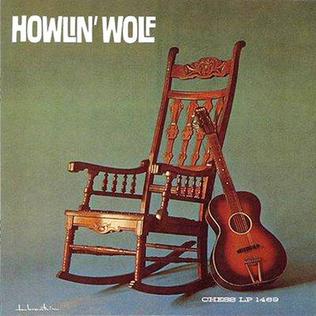
Howlin' Wolf is the second album from the Chicago blues singer/guitarist/harmonicist, Howlin' Wolf. Released in 1962, it is a collection of twelve Chess singles that they previously released between June, 1957 and December, 1961. Because of the illustration on its sleeve, the album is often called The Rockin' Chair Album, a nickname even added to the cover on some reissue pressings of the LP.
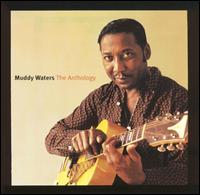
The Anthology: 1947–1972 is a double compilation album by Chicago blues singer and guitarist Muddy Waters. It contains many of his best-known songs, including his R&B single chart hits "I'm Your Hoochie Coochie Man", "Just Make Love to Me ", and "I'm Ready". Chess and MCA Records released the set on August 28, 2001.

"Stop Breaking Down" or "Stop Breakin' Down Blues" is a Delta blues song recorded by Robert Johnson in 1937. An "upbeat boogie with a strong chorus line", the lyrics are partly based on Johnson's experience with certain women:

Hoodoo Man Blues is the debut album of blues vocalist and harmonica player Junior Wells, performing with the Junior Wells' Chicago Blues Band, an early collaboration with guitarist Buddy Guy. Released on LP by Delmark Records in November 1965, the album has been subsequently reissued on CD and LP by Delmark and Analogue Productions.

Damn Right, I've Got the Blues is the seventh studio album by Blues guitarist Buddy Guy. The album has been described by Allmusic and Rolling Stone as a commercial comeback album for Guy after limited recording for the previous 10 years. In 2005 the album was reissued as Damn Right, I've Got The Blues Expanded Edition, featuring two bonus tracks.

"Just Your Fool" is a rhythm and blues-style song written and recorded by the American jazz and jump blues bandleader/pianist Buddy Johnson and His Orchestra in 1953. Called an "R&B anthem", the song has a big-band arrangement and his sister Ella Johnson on vocals—her "delicate and deceptively sweet phrasing was ideally suited to ballads such as this". "I'm Just Your Fool" became a Billboard R&B chart record hit, reaching number six in 1954.

DJ Play My Blues is the sixth studio album by blues musician Buddy Guy, recorded in December 1981 and released on JSP Records in 1982. It was the third in a trio of Guy albums on JSP.

Stone Crazy! is an album by the American musician Buddy Guy. It was recorded and released in 1979.

The Dollar Done Fell is the second live album by Buddy Guy.

Pleading the Blues is an album by Chicago blues harp player Junior Wells.

Hold That Plane! is the third studio album by blues guitarist Buddy Guy. It was recorded in November 1969, but not released by Vanguard Records until 1972.

Blues Is King is a live album by blues musician, B.B. King recorded in Chicago in 1966 and released by the BluesWay label in 1967.
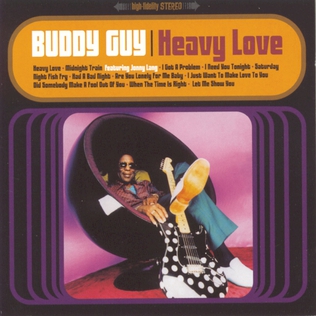
Heavy Love is an album by the American blues musician Buddy Guy, released in 1998. It was nominated for a Grammy Award for "Best Contemporary Blues Album".




















